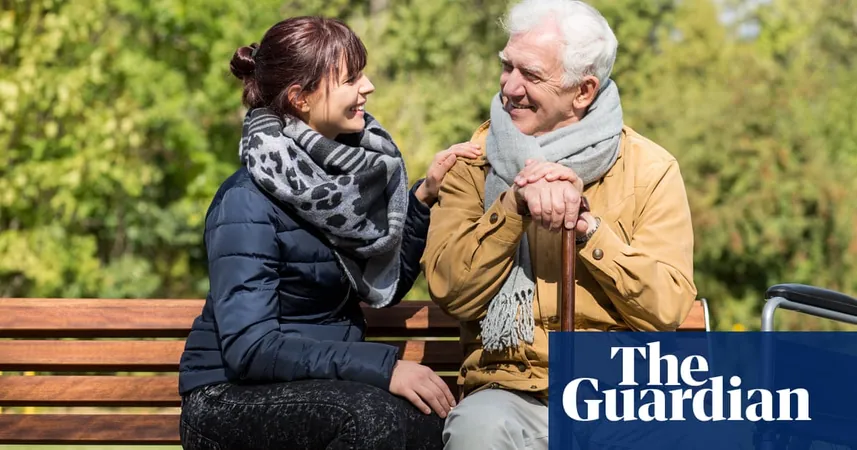
Shingles Vaccine May Significantly Lower Dementia Risk, New Research Reveals!
2025-04-02
Author: Yan
Groundbreaking Study Findings
In a groundbreaking study, researchers have unveiled compelling evidence suggesting that the shingles vaccine significantly decreases the risk of developing dementia in older adults. This revelation stems from an analysis of health records for over 280,000 adults in Wales, where findings indicate that individuals who received the shingles vaccine, specifically the older Zostavax formula, were 20% less likely to be diagnosed with dementia within seven years compared to their unvaccinated peers.
Dr. Pascal Geldsetzer from Stanford University emphasized the significance of this finding, stating, 'For the first time, we are able to assert with much greater confidence that the shingles vaccine leads to a reduction in dementia risk. This could be a groundbreaking discovery in dementia prevention!'
Research Methodology
The study utilized a unique situation in public health policy that enabled a natural experiment among older populations. Those born on or after September 2, 1933 became eligible for the Zostavax vaccination beginning September 1, 2013, while older individuals were not offered the vaccine. This age-based eligibility allowed researchers to draw comparisons between groups that were just weeks apart in age, shedding light on the impact of vaccination on dementia rates.
After adjusting for various factors, including the acknowledgment that not all eligible individuals opted for the vaccine, the study consistently identified a 20% reduction in dementia risk, with particularly pronounced effects observed among women.
Context and Impact
Dementia is a debilitating brain disorder affecting over 55 million people worldwide, with projections indicating that up to one in three individuals could develop the condition in their lifetime. While new medications have emerged that might slow disease progression, effective solutions for outright prevention remain elusive.
The varicella-zoster virus, responsible for chickenpox and shingles, lies dormant in nerve cells after an initial infection. It can reactivate in older adults or those with compromised immunity, leading to shingles. The implications of vaccinating against shingles as a strategy for reducing dementia risk are garnering increased attention.
Previous Research and Comparative Studies
This latest investigation, published in the esteemed journal Nature, is not the first to suggest a correlation between shingles vaccination and decreased dementia rates. Initial studies conducted in the U.S. after the rollout of Zostavax in 2006 hinted at lower dementia cases among vaccinated individuals. Additionally, researchers from Oxford reported even stronger protective effects associated with Shingrix, a newer shingles vaccine.
Hypotheses Behind the Findings
While the precise mechanisms by which shingles vaccines may reduce dementia risk remain speculative, some hypothesize that they help lower inflammation in the nervous system by preventing virus reactivation. Others suggest the vaccines might modulate the immune system in broader, more protective ways, which are observed more frequently in women — a finding that could explain the gender disparities seen in this study.
Expert Perspectives
Julia Dudley, head of research at Alzheimer’s Research UK, acknowledged the study's strengthening of the link between vaccination and dementia risk. 'This research presents robust evidence of a direct association, particularly benefiting women. Understanding how the shingles vaccine influences dementia risk could unlock new pathways for prevention and treatment strategies,' she noted.
Future Research Directions
As the scientific community digs deeper, questions remain about the adaptability of vaccines and potential alternatives. Maxime Taquet, whose research highlighted reduced dementia risk linked to Shingrix vaccination, noted the importance of how newer vaccines, particularly those with specific adjuvants that enhance immune responses, may offer superior protection.
Conclusion and Implications
This research opens a new chapter in the conversation surrounding dementia prevention, suggesting that a simple vaccination could have extensive public health benefits that extend beyond its original purpose. If confirmed through further studies, this could pave the way for innovative strategies in the fight against dementia, fundamentally shifting our approach to brain health. Keep an eye on upcoming clinical trials that will be essential in validating these promising findings!





 Brasil (PT)
Brasil (PT)
 Canada (EN)
Canada (EN)
 Chile (ES)
Chile (ES)
 Česko (CS)
Česko (CS)
 대한민국 (KO)
대한민국 (KO)
 España (ES)
España (ES)
 France (FR)
France (FR)
 Hong Kong (EN)
Hong Kong (EN)
 Italia (IT)
Italia (IT)
 日本 (JA)
日本 (JA)
 Magyarország (HU)
Magyarország (HU)
 Norge (NO)
Norge (NO)
 Polska (PL)
Polska (PL)
 Schweiz (DE)
Schweiz (DE)
 Singapore (EN)
Singapore (EN)
 Sverige (SV)
Sverige (SV)
 Suomi (FI)
Suomi (FI)
 Türkiye (TR)
Türkiye (TR)
 الإمارات العربية المتحدة (AR)
الإمارات العربية المتحدة (AR)